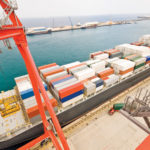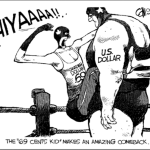
Tag Archives World Trade Organization

CAFTA less enamoured with Europe trade deal
Deal doesn’t solve trade barriers, making it less attractive to the sector, longtime trade champion says

U.S. trade double standard confirmed
American trade expert Joe Glauber sees continued pressure on Canada’s supply management and rising domestic farm subsidies in developing countries

Support for free trade ain’t what it used to be
What was ‘accepted wisdom’ is under populist attack, but a veteran American trade advocate expects a revival in trade liberalization because of the benefits

Trump’s triumph turns to ag trade trepidation
The U.S. president-elect has threatened to tear up the $1-trillion-a-year North American Free Trade Agreement and says he won’t ratify the Trans-Pacific Partnership
Editorial: Withering trade

Agri-food products spotlighted by internal trade report
Too many internal barriers are costing the Canadian economy billions annually

The COOL effect on beef trade

Editorial: Stuck in time

A struggling loonie puts up its dukes, sort of
Our History: May 1999

Canadian wheat growers hit by subsidy effects
Advanced developing nations subsidize wheat growers, hurting farmers from exporting nations




